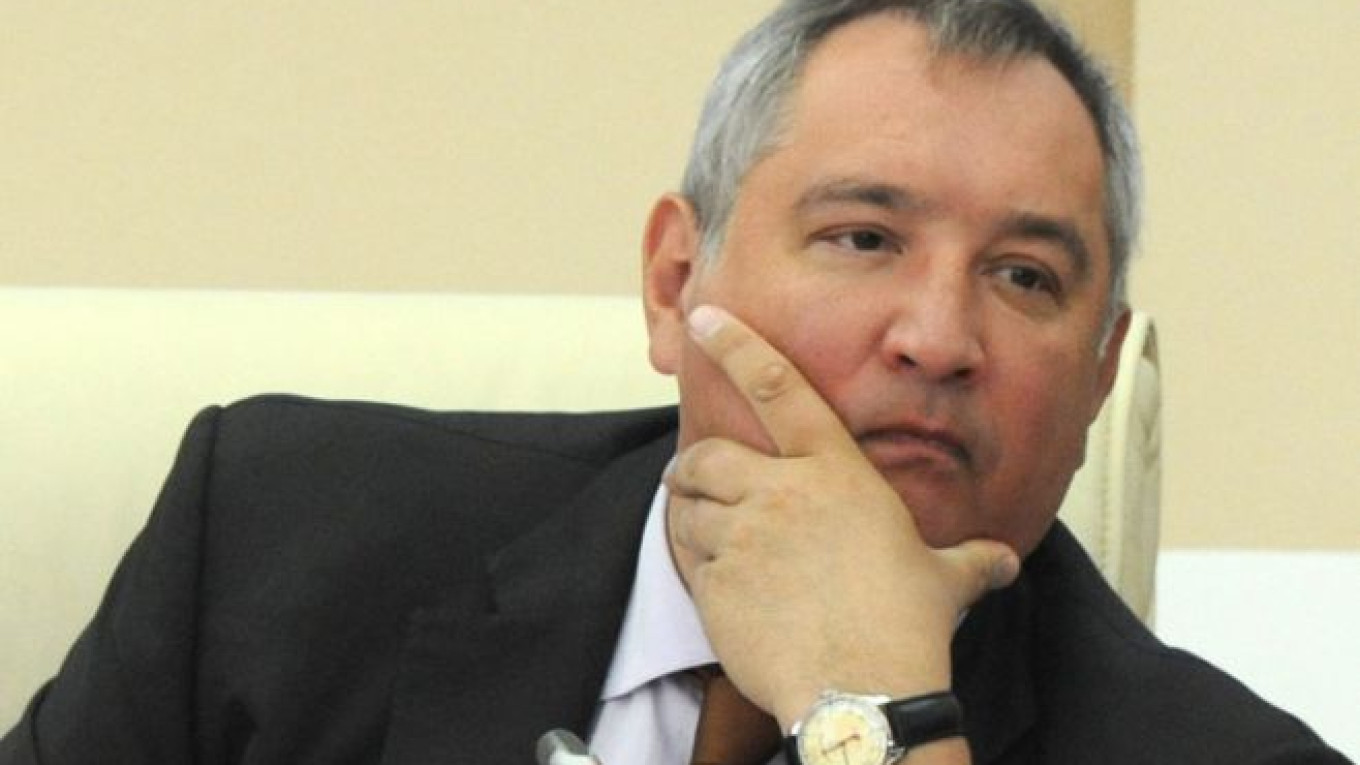After multiple rewrites over the past year in the wake of the collapse of the ruble, Russia's proposed decade-long vision for space exploration and utilization will be submitted to President Vladimir Putin for approval "in the near future," a senior Russian space official said Tuesday.
The document, known as the Federal Space Program 2016-2025, is a policy document that outlines objectives, programs and planned funding levels for all Russian government-funded space activities over the next decade.
"[Putin] has identified priorities [for the program] in several policy documents," said Deputy Prime Minister Dmitry Rogozin, Russia's space czar. "In the near future [he] will hear the report of [space agency] Roscosmos on the draft program in which all priorities are explained in detail."
Rogozin said earlier this month that the program should be submitted sometime in November, and his latest comments do not make it clear if this target will be hit, TASS reported.
The program was supposed to be submitted to the government for approval late last year, but the collapse of the ruble, ongoing launch failures and related mishaps, leadership shakeups at the federal space agency, and an industry-wide reform plan have all conspired to delay the final draft.
A draft was expected this summer, but in March a senior Roscosmos official was quoted by the TASS news agency as saying that the proposal had already been significantly altered, and "looks completely different" than it did when originally completed in 2014.
The biggest change to the draft was the level of funding dedicated to Russian space exploration over the 10-year period from 2016 to 2025, which was reduced by 10 percent between drafts to 3.4 trillion rubles ($52.5 billion).
Rogozin's latest remarks about the status of the program shed little light on how much money Russia will invest in specific space-related projects, such as today's announcement by the head of Energia — Russia's largest space company — that Russia will land men on the moon by 2029, government daily Rossiiskaya Gazeta reported.
Rogozin instead talked about broad objectives for Russia's space agency, which is being liquidated as a government organ later this year and reformed as a state-owned space corporation, with the majority of Russia's space industry consolidated under its control.
Among the broad objectives mentioned by Rogozin on Tuesday were the completion and commercialization of Russia's Glonass satellite navigation system — a rough analogue to the U.S.-built Global Positioning System — as well as earth-observation satellites.
Rogozin claimed that one of the most ambitious projects on the program will be the creation of a so-called space tug — a vehicle that parks in orbit waiting for cargo to rendezvous with and then transport to other orbits, or to the moon and beyond.
The space industry, Rogozin said, is also working on building a new family of heavy and superheavy space rockets on the basis of existing designs like the Soyuz-2 and brand-new Angara family of rockets.
Contact the author at m.bodner@imedia.ru
A Message from The Moscow Times:
Dear readers,
We are facing unprecedented challenges. Russia's Prosecutor General's Office has designated The Moscow Times as an "undesirable" organization, criminalizing our work and putting our staff at risk of prosecution. This follows our earlier unjust labeling as a "foreign agent."
These actions are direct attempts to silence independent journalism in Russia. The authorities claim our work "discredits the decisions of the Russian leadership." We see things differently: we strive to provide accurate, unbiased reporting on Russia.
We, the journalists of The Moscow Times, refuse to be silenced. But to continue our work, we need your help.
Your support, no matter how small, makes a world of difference. If you can, please support us monthly starting from just $2. It's quick to set up, and every contribution makes a significant impact.
By supporting The Moscow Times, you're defending open, independent journalism in the face of repression. Thank you for standing with us.
Remind me later.


